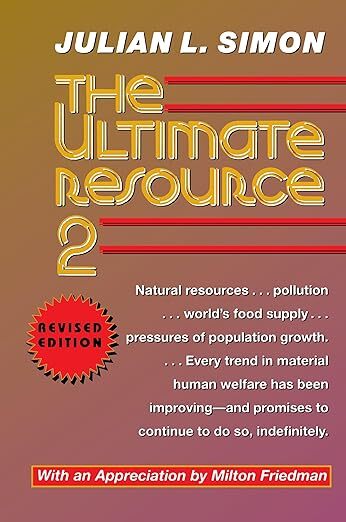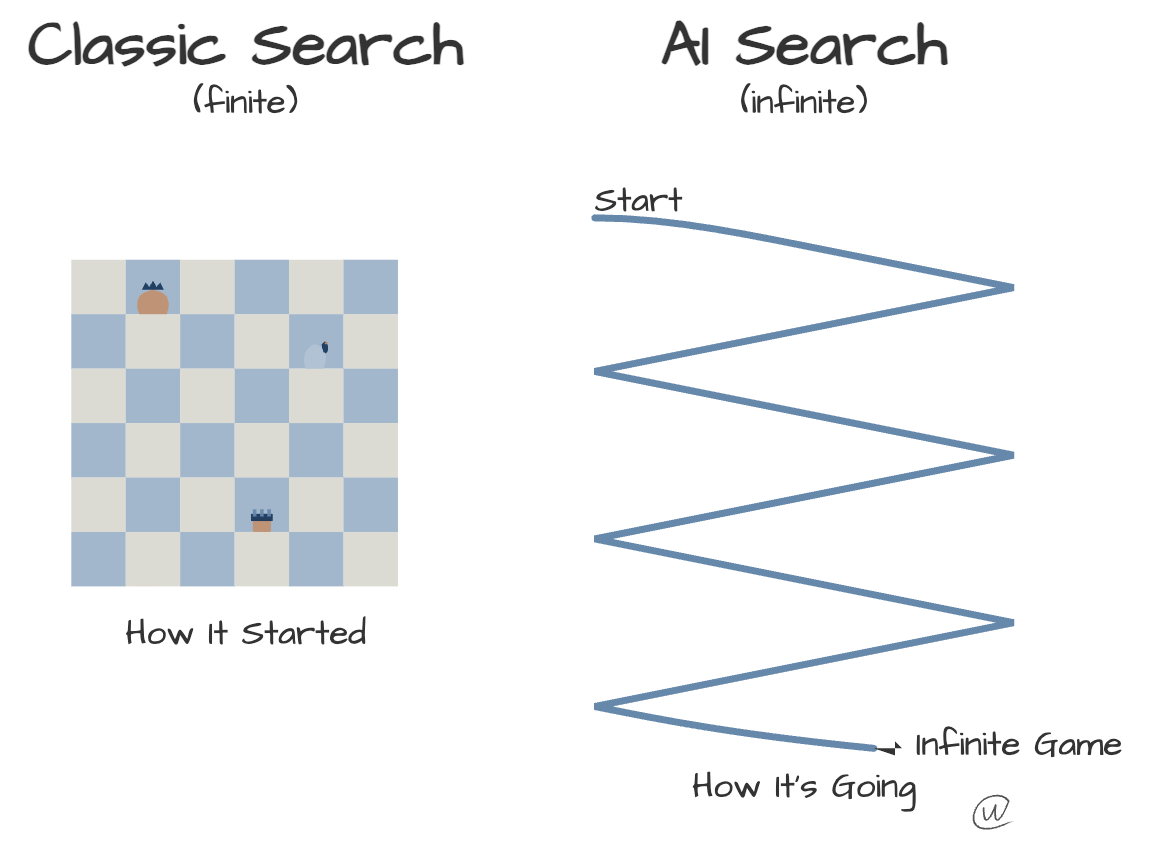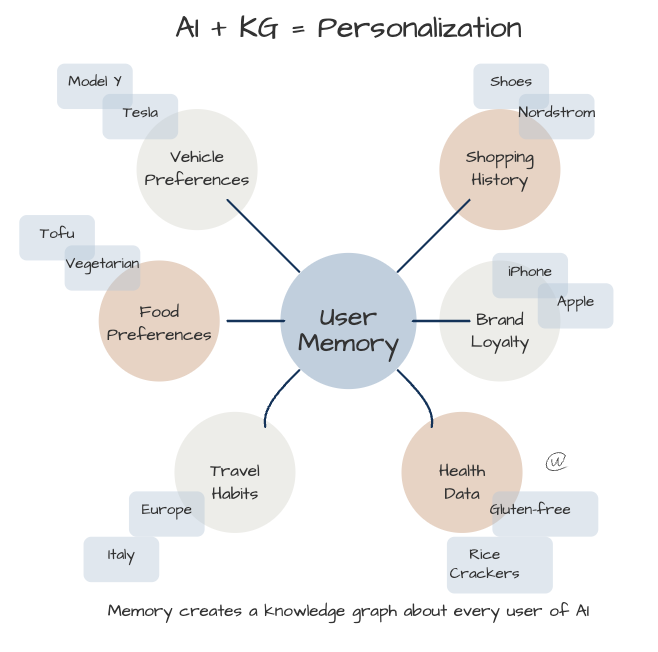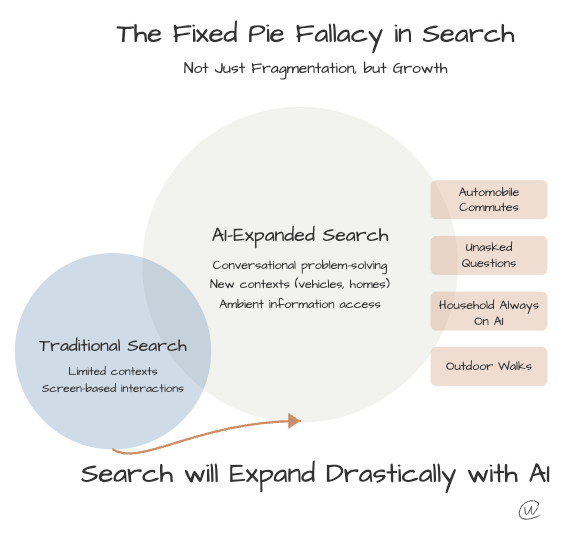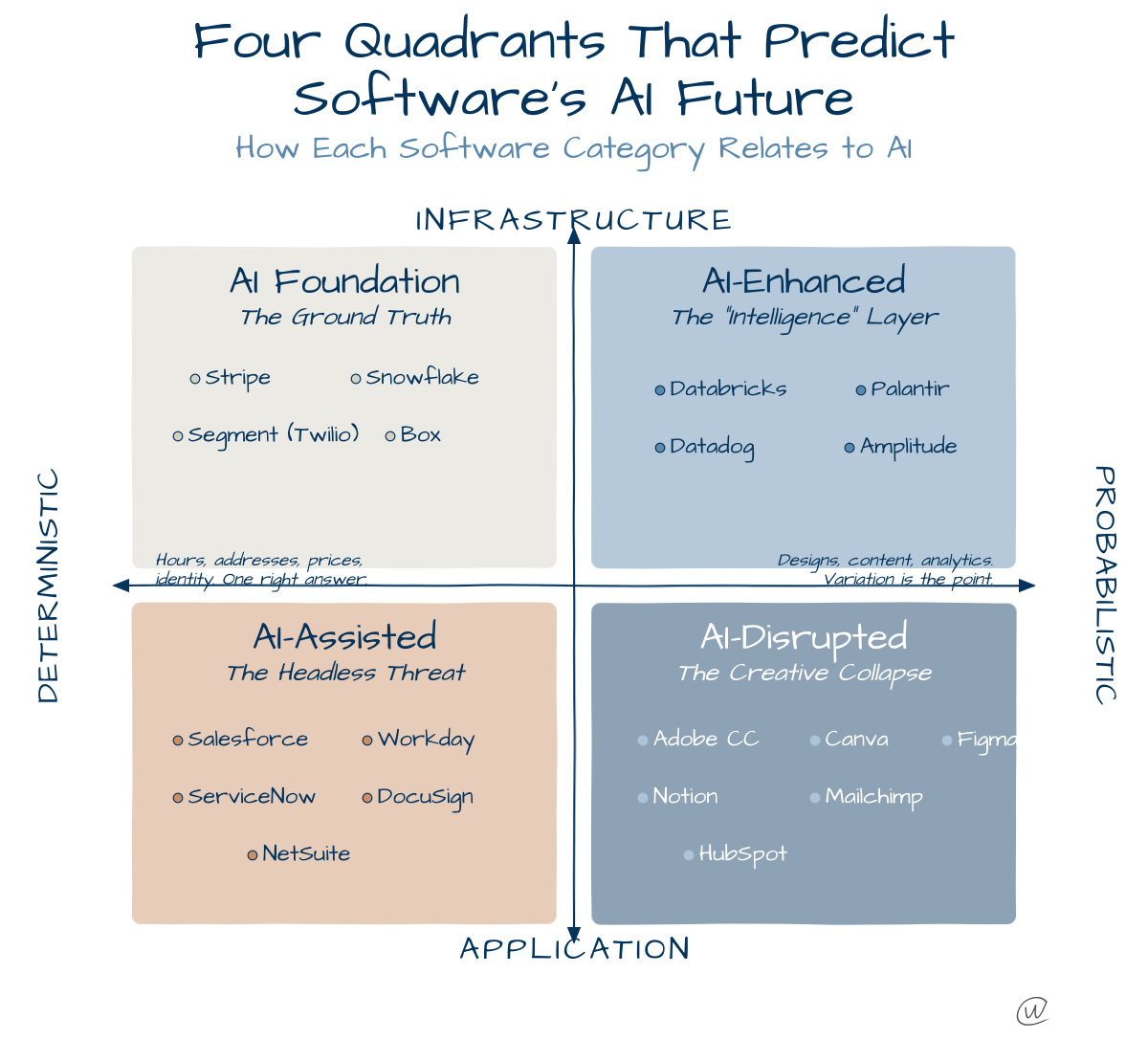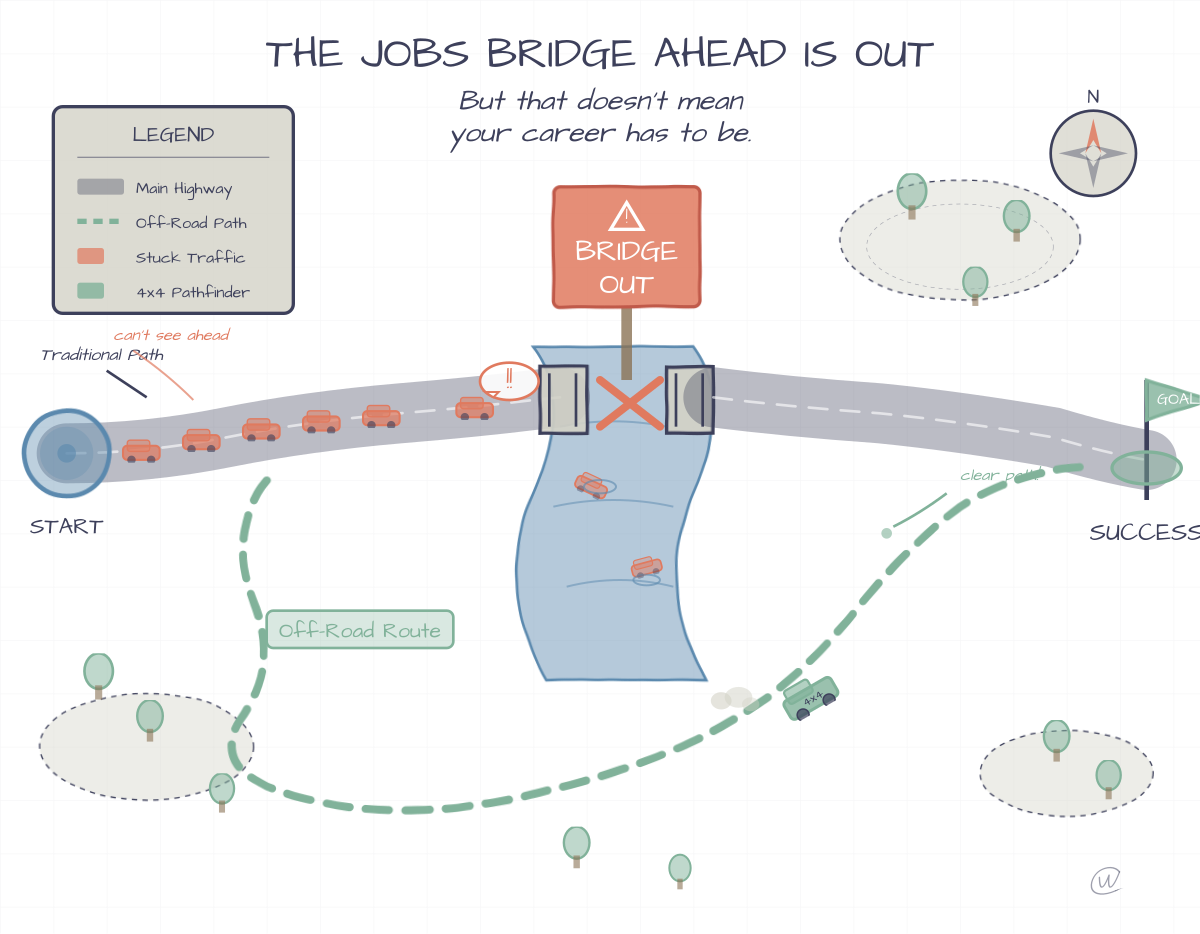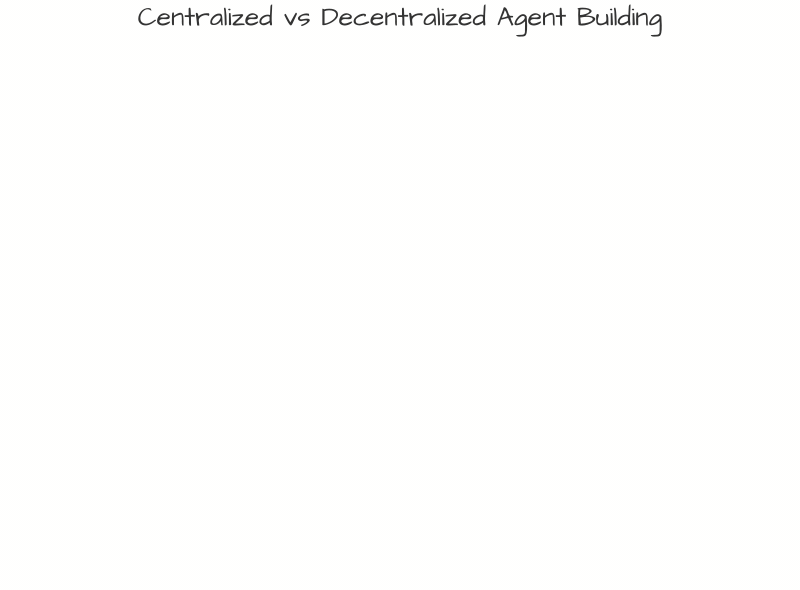Search Fragmentation Grows the Pie
Browser Fragmentation is a New Accelerant and Opportunity
Christian J. Ward
Jul 15, 2025
The conventional wisdom about search fragmentation contains a blind spot. We’ve seen this many times before when a market undergoes a significant innovation or restructuring.
Market analysts tracking Google's declining share of search queries interpret this as redistribution within a fixed market (or pie). They measure ChatGPT's growing usage, Claude’s growth, and Perplexity's expanding query volume and conclude that Google is losing ground. This is a mistake.
And this perspective completely misunderstands what's happening.

The Fixed Pie Fallacy
Economist Julian Simon spent decades challenging the "fixed pie" assumption in resource economics. In The Ultimate Resource (1981), Simon argued that apparent scarcity often masks untapped abundance. When pie-fixated thinking dominates, we miss the mechanisms that expand total availability.
The same fallacy distorts our understanding of search fragmentation. When Google's search impression volume plateaus or declines, analysts assume the total search market is contracting. They see billions of queries moving to ChatGPT, Gemini, Grok, and Perplexity and frame this as redistribution.
But search isn't a zero-sum game.
The real story is expansion, not erosion. AI-driven search surfaces billions of queries that were never practical through traditional keyword interfaces. These new queries emerge from contexts where typing was impossible or inefficient: voice interactions in vehicles, quick clarifications through wearables, ambient questions in smart homes, and specialized inquiries within workplace RAG tools.
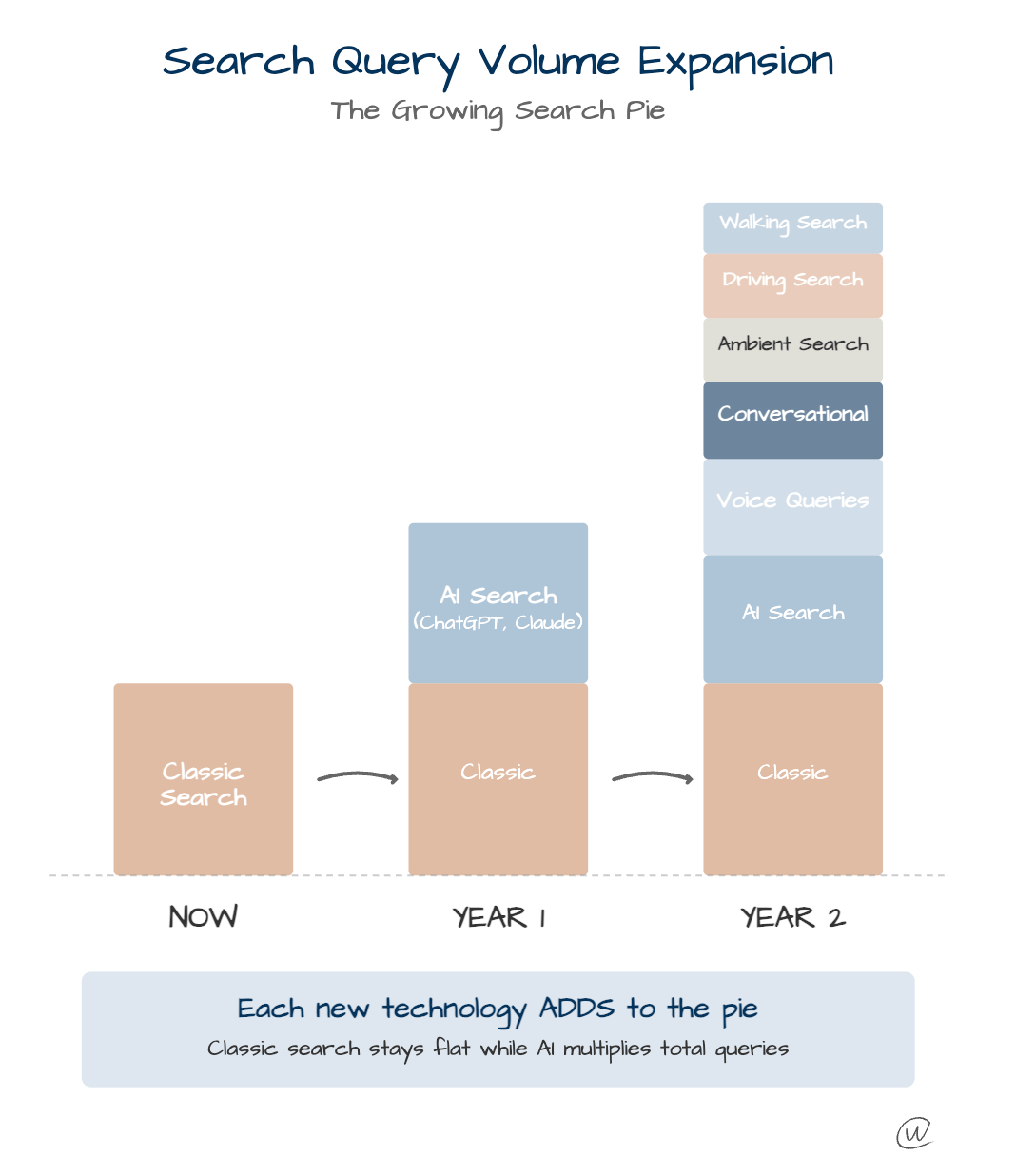
There will be so much more Search.
As detailed in my earlier analysis of the infinite game nature of search, the total addressable market for information queries is essentially unlimited. The constraint was never human curiosity but interface friction.

Three Independent Fragmentations
Understanding search fragmentation requires recognizing three distinct but interconnected disruptions that occur simultaneously. Each operates through different mechanisms and creates distinct types of market expansion.
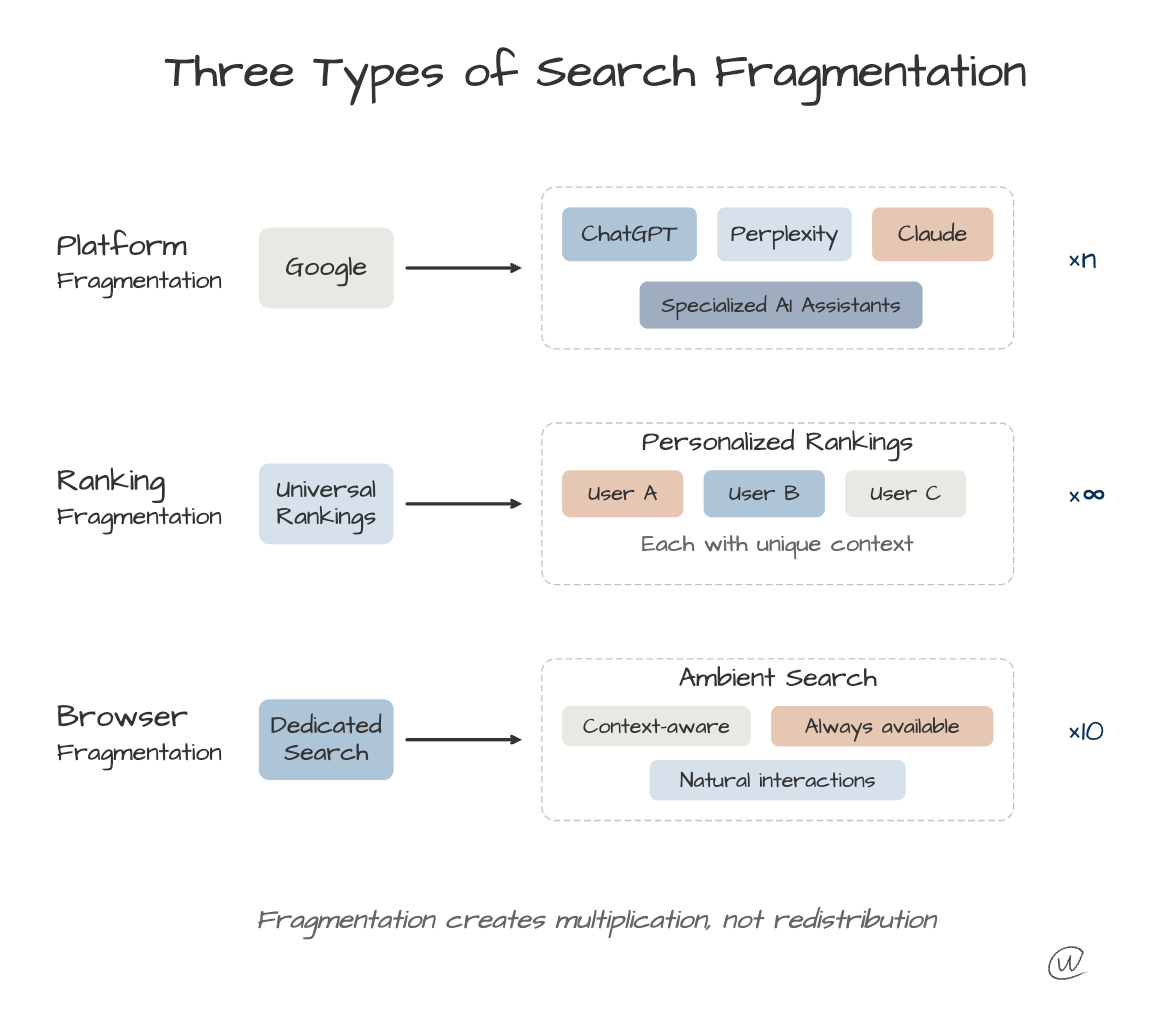
This is a combinatorial explosion of Search.
Platform Fragmentation
Users no longer default to a single search engine. Instead, they maintain a portfolio of specialized models at the ready.
Morning news updates might come through Perplexity. Creative brainstorming sessions flow through Claude. Technical troubleshooting runs through ChatGPT. Domain-specific questions route to specialized AI assistants. Workplace queries hit internal RAG systems.
This diversification adds query volume rather than simply redistributing it. Each platform optimizes for different intents and contexts.
The same person who searches "restaurants near me" on Google might also ask Claude for recipe modifications and query their company's internal assistant about dietary policies. These aren't competing queries; they're complementary ones.
The multiplication effect intensifies as each platform develops unique capabilities. Gemini's multimodal processing surfaces visual queries that never existed in text-only environments. Grok's real-time data integration enables time-sensitive questions that traditional search couldn't handle effectively. ChatGPT's reasoning capabilities unlock complex analytical queries that would have required multiple traditional searches.
Ranking Fragmentation
Memory-enabled systems alter how results get ordered. Instead of universal authority signals determining rankings, personal context shapes every response. The same query now yields millions of different rank orders, one per user profile.
This transformation moves beyond simple personalization. AI systems with persistent memory don't just adjust rankings based on past behavior.
They reconstruct the entire relevance framework for each individual. As I explored in my analysis of AI memory features, these systems create personalized knowledge graphs that evolve with each interaction.
A query about "best project management tools" might surface completely different results for a startup founder versus a Fortune 500 operations manager, not because the tools are different, but because the AI understands their specific context, constraints, and past preferences. This personalization multiplies the effective search surface area exponentially.
Browser Fragmentation
The most recent disruption involves search entry points themselves. Traditional browsers separate search from browsing by using dedicated search engine homepages (or the top navigation bar, known as the Omnibox).
AI-native browsers, on the other hand, embed search directly into the browsing experience and produce an agentic extension of the web.
Perplexity's Comet browser exemplifies this shift. Rather than navigating to a search engine, users interact with AI capabilities throughout their browsing session. Questions emerge naturally from content consumption rather than requiring deliberate search initiation.
OpenAI's anticipated browser release will likely accelerate this trend. When search becomes ambient rather than intentional, query volume multiplies dramatically. Users ask questions they never would have typed into a traditional search box.
Context-aware browsers reduce the friction between curiosity and inquiry. Instead of switching tabs or apps to search, users can immediately query whatever they're viewing or thinking about. This seamless integration transforms casual wondering into searchable queries.

Strategic Implications for Businesses
The multiplication of search surfaces demands new approaches to visibility and measurement. Traditional SEO metrics become inadequate when queries fragment across platforms, rankings, and browsers.
Measurement Reset
Impression-based KPIs lose relevance when the same query produces different results for different users across various platforms. Track solved tasks or assisted decisions instead. Focus on query completion rates rather than click-through rates. Monitor how effectively your content answers questions rather than how often it appears in results.Data Strategy
Brands must supply structured offers that AI can call at the moment of need. This replaces ad auctions with real-time eligibility systems. Instead of bidding for keyword placement, businesses need to ensure their information is accessible when AI systems evaluate options for users.The shift requires rethinking content architecture. Rather than optimizing pages for search engines, optimize data for AI consumption. Create machine-readable specifications, pricing, availability, and capabilities that AI can access instantly.
Experience Design
Optimize for inclusion in personal memory graphs rather than universal top-ten lists. This means creating memorable, contextually relevant interactions that AI systems will recall when appropriate. Instead of pursuing broad visibility, focus on deep relevance for specific user contexts.
As I detailed in my analysis of the expanding search pie, this approach aligns with the shift from push-based discovery to pull-based assistance.

Resistance and Challenges
Several forces will slow or complicate search fragmentation.
Incumbent ad models rely heavily on repeat queries. When AI systems remember previous interactions and provide increasingly complete answers, users ask fewer follow-up questions. This reduces the query loops that drive advertising revenue, creating economic pressure to limit memory capabilities.
Privacy concerns will shape the amount of history an assistant retains, influencing the depth of ranking fragmentation.
Users may opt for limited memory to protect their privacy, thereby reducing the personalization that drives query multiplication.
Regulatory scrutiny may slow the rollout of always-on context capture. Governments concerned about data collection and market concentration might limit the ambient search capabilities that create new query surfaces.
Probably the greatest challenge, though, is the incumbent model.
In 1998, a paper titled "The Anatomy of a Large-Scale Hypertextual Web Search Engine," by founders Sergey Brin and Larry Page, posited that advertising could present a real problem. They stated:
However biased it may be, the search engine created from this paper (you can find here), has become one of the most successful business models of all time. Breaking that incumbent model, behavior, ecosystem, and grip will be a massive challenge.

The Abundance Paradigm
Julian Simon's insight about resource abundance applies perfectly to information discovery. When we viewed search as scarce, limited by typing speed, query formulation skills, and interface friction, we built systems to ration it. Keyword bidding. Ten blue links. Winner-take-all rankings.
The fragmentation reveals that abundance was always there, waiting for the right interfaces to unlock it.
Google's search market share dipped below 90% for the first time since 2015, not because users are searching less, but because they're searching everywhere. ChatGPT alone processes over 1 billion queries daily, queries that never would have existed in a keyword-based paradigm.
The businesses thriving in this transition aren't those defending yesterday's metrics. They're the ones recognizing that when information discovery becomes frictionless, the game changes entirely.
Three immediate actions for forward-thinking companies:
Instrument for Multiplication: Stop measuring the share of searches. Start measuring problems solved across all platforms where your audience seeks answers.
Design for Memory: Your content isn't competing for position #1 anymore. It's competing to become part of personal AI knowledge graphs that persist across sessions.
Prepare for Ambient Discovery: When browsers become active agents, your information needs to be discoverable not just through keywords, but through context, intent, and user state.
The search pie isn't being sliced differently.
Multiple pies are being baked simultaneously, each one larger than the last. The constraint was never human curiosity - it was the poverty of our interfaces.
The only question that matters.
Will you keep fighting over the shrinking traditional pie, or help create the abundance that's already emerging?
